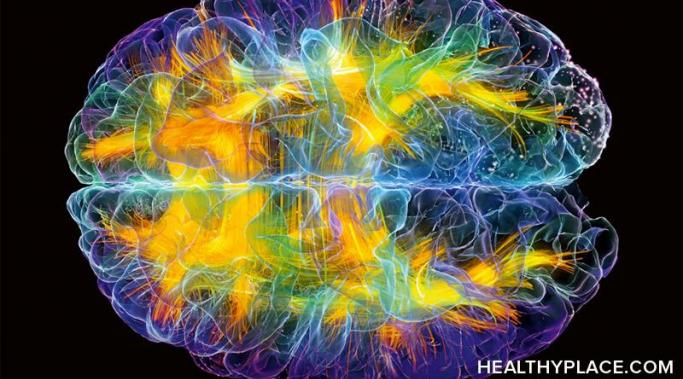One of the things I find most frustrating about living with posttraumatic stress disorder (PTSD) is the impact PTSD has on my sex drive. I am a private person, and sex is a decidedly personal issue for many people, so I've put this topic off many times. However, the problems that PTSD can bring to partners don't go away on their own, so let's explore the potential difficulties that PTSD symptoms can bring to a sexual relationship.
Trauma! A PTSD Blog
Posttraumatic stress disorder (PTSD) stigma is alive and well. If you have PTSD, you've probably heard someone tell you to "just get over" your trauma. Maybe it was a well-meaning friend or family member, like my father who was frightened by my suicidal ideations. Or maybe it was a less well-meaning stranger, like the rude New Yorker who recently commented on my blog telling me to, "Grow up and take responsibility for [my] life." Whether the statement comes from a place of love or PTSD stigma, it doesn't make sense. Here's why.
Complex posttraumatic stress disorder (C-PTSD) and perfectionism often occur together. What drives someone with C-PTSD towards clinically significant perfectionism? Generally speaking, perfectionism becomes clinically significant when it results in an excessive or unrealistic need to perform to exceedingly high, self-imposed standards. The drive for perfection is so strong that it can interfere with work, education or relationships. For individuals with C-PTSD, the need for absolute excellence can become a means of dealing with fear and anxiety created by ongoing trauma. Let's examine how trauma drives these unrealistic expectations, and how to set more realistic goals.
Feeling helpless helps my trauma recovery? Yes--you read the title correctly. The subject of this article is helplessness as a form of healing. If that sounds completely counterintuitive to you, you're not alone. I'm sure that if I had come across an article making this same claim in the past, I would have labeled it as completely ludicrous. But hear me out. If you totally disagree, you can write out your counter-argument in the comments.
Do you ever feel like you're in a mental fog, you can't think straight, or as though you have to labor to access even the simplest thoughts? I feel this way often, and it used to make me panic, like I was losing my mental faculties. Then I realized that "mental fog," aka "brain fog," (not clinical terms) or confusion can actually result from posttraumatic stress disorder (PTSD). Triggers, stress, and anxiety can heighten feelings of mental fog--leaving those of us with PTSD feeling even more vulnerable and confused during the very moments when we most need to feel safe and in control.
A good posttraumatic stress disorder (PTSD) trauma therapist can make all the difference when it comes to PTSD treatment, but not all therapists are created equal. Finding a competent trauma therapist for your PTSD recovery can be difficult without an understanding of the technical and interpersonal skills a PTSD trauma therapist should possess, and what approaches you find comfortable.
Posttraumatic stress disorder and psychosis? What do you think of when you hear the term "psychosis?" Most people know that it is a serious mental illness symptom that involves a radical disconnection from objective reality. Not everyone knows, however, that sometimes having posttraumatic stress disorder (PTSD) can lead to psychosis.
For many individuals with posttraumatic stress disorder (PTSD), short-term memory loss is a significant concern. While working to calm and organize memories of trauma, individuals with PTSD may also struggle to recall simple, everyday information. Short-term memory loss can leave an individual with PTSD with concerns over deteriorating cognitive functioning, and uncertainty about just how much forgetfulness is reasonable and how much becomes a medical concern.
There are barriers to recovery from posttraumatic stress disorder (PTSD). Mental illness recovery often begins as an uphill battle. It doesn't help that aside from difficult symptoms, those of us living with one or more mental illness also have to combat stigma and wide-spread misinformation--all while navigating a mental healthcare system that often favors the wealthy. Recovery from PTSD is saddled with some very specific barriers. In fact, treatment resistance is actually a symptom of PTSD. If you or a loved one are struggling to recover from trauma, please hold back from judgement. There are reasons for treatment-resistant PTSD behaviors; you or your loved one are not at fault.
Difficulties with posttraumatic stress disorder (PTSD) and intimacy are common, regardless of the nature of the trauma leading to PTSD. A quick search of the Internet will return dozens of links to websites regarding PTSD and intimacy and the challenges PTSD presents in maintaining intimate relationships. There is a flood of information regarding trust issues, poor communication, closeness, violence, sexual dysfunction, and more. However, in my case, all the facts and statistics do is cause my eyes to glaze over without really getting to the point. In an intimate relationship, partners usually come to understand each other's behaviors. What really happens in a relationship when PTSD and intimacy collide?









